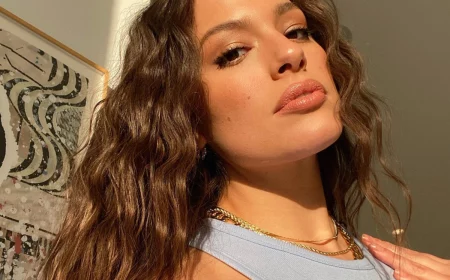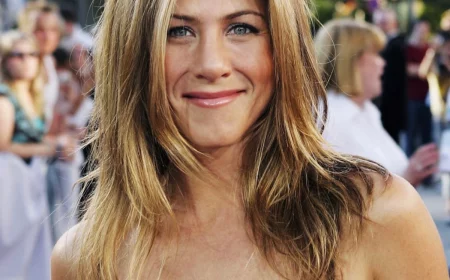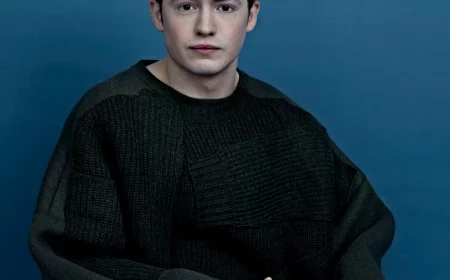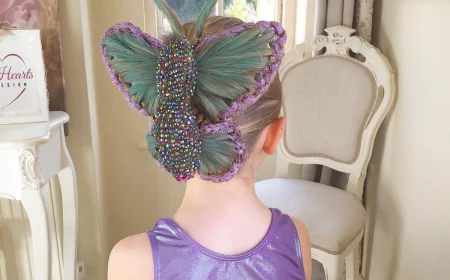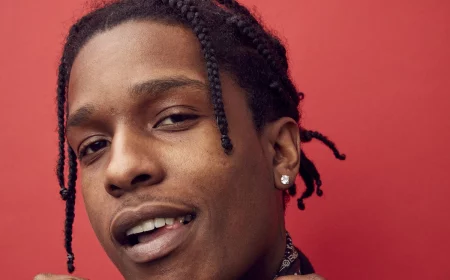The Bob Haircut, Demystified: Everything Your Stylist Wishes You Knew
After a couple of decades behind the chair, I’ve seen countless trends pop up and then fade away. But there’s one haircut that just never quits: the bob. It’s easily the most requested style, but honestly, it’s also the most misunderstood. A truly great bob isn’t just a simple, short haircut—it’s precision engineering. It’s like architecture for your head, built with nothing but shears and a comb.
In this article
So many people think it’s the ultimate low-maintenance option. And while it can be, the funny thing is, the most stunning, head-turning bobs actually require an immense amount of skill to get right.
When I’m training up-and-coming stylists, I always tell them the bob is their final exam. It’s a true test of their control, their eye for balance, and their grasp of how different hair types really behave. A single snip in the wrong place can throw the whole shape off. Historically, it was a symbol of rebellion, a sharp break from the long hair of the past. But for a stylist? Its story is all about technical mastery. From the severe, sharp lines of traditional styles to the soft, lived-in bobs we see today, the core principle is always the same. It is all about the line.

This guide is meant to go way beyond the inspiration photos you’ve saved. We’re going to get into the nitty-gritty of what makes a bob work, and—more importantly—why a certain style might be a dream or a disaster for your hair and your daily routine. My goal is to arm you with the right knowledge so you can have a real, productive conversation with your stylist. Because a beautiful bob doesn’t start with the scissors; it starts with a clear understanding between you and the pro behind the chair.
The Foundation of a Great Bob
Before my shears even touch a strand of hair, I’m thinking about physics. No, really. Gravity, density, and texture are the forces that dictate the final result. Getting a handle on these is what separates a bob that hangs beautifully from one that just creates headaches. A pro doesn’t just cut hair; they figure out how it’s going to live and move out in the real world.

The backbone of nearly every bob is a one-length line, meaning all the hair falls to a single, clean perimeter. Sounds easy, right? It’s not. Your head isn’t a perfect sphere—it has dips and curves, especially around the nape of the neck. We all have that prominent bone at the back of the skull, the occipital bone. If a stylist just cuts a straight line across without accounting for that curve, guess what happens when the hair dries? It jumps up, creating a little hole or a gap in the haircut. I learned that the hard way early in my career when I didn’t properly check a client’s tricky cowlick at the nape… it taught me a lesson I’ll never forget about checking every detail before cutting!
Then there’s density and texture. These are critical. Density is about how many hairs you have per square inch, while texture is about how thick each individual strand is (fine, medium, or coarse). You can have fine-textured hair but a ton of it (high density). This type of hair often looks full but can collapse easily, so a strong, blunt bob can make it appear much thicker. On the flip side, someone with coarse hair but low density might find a blunt cut looks a bit sparse. For them, I’d use some subtle, internal texturizing to create movement and the illusion of more hair.

We also use terms like elevation and graduation. Elevation is just how much we lift the hair off the head before cutting. A classic, sharp bob is cut at zero-degrees elevation—combed straight down with no lift. This gives you the sharpest line possible. Graduation is when we use a tiny bit of elevation, usually between 1 and 45 degrees. By lifting the hair just slightly, we can build weight and create a soft, beveled edge. This is the secret weapon for preventing that dreaded ‘triangle’ shape on thick hair.
The Real Talk & The Techniques
Honestly, the most important part of the entire appointment is the first fifteen minutes: the consultation. This is where we build trust. I need to know more than just what you want; I need to know what your life is like. Are you a ten-minute-styler or a wash-and-go person? That perfect, jaw-length bob might need daily flat-ironing, whereas a softer, textured lob (long bob) will be way more forgiving.

This is your time to ask the important questions. Don’t be shy!
Good to know: Questions to Ask Your Stylist
- Is this cut realistic for my morning routine? (Be honest about how much time you have!)
- How will this look as it starts to grow out?
- What kind of maintenance and how many visits will this cut require?
- Can you show me a quick way to style this at home before I leave?
- Will this work with my hair’s natural texture, or will I be fighting it every day?
Once we have a game plan, I pick my tools and techniques. And no, they are not all the same.
Blunt Cutting: This is for that sharp, classic bob. I use heavy-duty shears and hold the hair with high tension for an incredibly precise line. It’s an unforgiving technique that shows every tiny flaw, so everything from my posture to my sectioning has to be perfect.

Point Cutting: To soften that hard line, I’ll go back in with the tips of my shears and cut vertically into the ends. This breaks up the solid edge, creating a softer, more modern texture you can actually see and feel.
Slide & Channel Cutting: These are my secret weapons for super thick hair. I’ll never forget a client who came to me with a bob from another salon that poofed out at the sides, creating a total pyramid shape. To fix it, I used deep channel cutting—snipping out small, hidden ‘channels’ of hair on the inside—to make the shape collapse and lie flat, all without changing the length. Slide cutting is similar, where I glide partially open shears down the hair shaft to seamlessly remove bulk. It’s a game-changer.
Wet vs. Dry Cutting: I almost always cut the main shape on wet hair because it’s easier to control. But I ALWAYS finish and refine a bob on dry hair. Why? Because hair shrinks and moves as it dries, especially if it’s wavy or curly. For my clients with serious curls, I’ll often do the entire cut dry, snipping each curl group right where it wants to live. It takes longer, but it guarantees no shocking surprises when the hair is dry.

Making the Bob Work for You
Your hair’s natural texture is the single most important factor—way more than face shape. Here’s the real deal for different hair types:
- For Fine Hair: The goal is fullness. A strong, blunt line is your absolute best friend. I’d avoid heavy layers or too much shaggy texturizing, as it can make the ends look weak. A chin-length or jaw-length bob is fantastic because it keeps all the weight consolidated in one place. Daily styling can be as quick as 5-10 minutes with a round brush and blow-dryer to build volume.
- For Thick Hair: Here, we’re fighting the bulk. As I mentioned, the triangle is the enemy. A graduated bob is a brilliant choice, as the subtle stacking in the back removes weight and creates a beautiful shape. A-line bobs (longer in the front) are also great for drawing the eye down and slimming the silhouette. Be prepared for a slightly longer styling time, maybe 15-20 minutes with a flat iron to get things super sleek.
- For Wavy & Curly Hair: A bob can be absolutely stunning on you, but only if the stylist gets it. Cutting a straight line is a disaster—it creates a ‘shelf’ where curls stack awkwardly. The cut has to be customized for your curl pattern, often with layers and point cutting to encourage definition. We always have to talk about the ‘spring factor’—a curl that’s shoulder-length when wet could easily bounce up to your chin when dry! Styling is often just applying product and air-drying or diffusing, which is low on effort but can take longer in real time.
- For Straight Hair: You have a perfect canvas, which means the cut has to be flawless. There is zero room for error. Even the slightest mistake in tension can create a visible step in the line. A sleek French bob can look incredible here, but it demands perfection from the stylist.

The Nitty-Gritty: Cost, Upkeep, and Styling Hacks
The perfect haircut is one that fits your budget and lifestyle. Let’s be real about what a good bob actually costs.
A quality, precision bob from an experienced stylist can range anywhere from $60 in a smaller town to $200+ with a specialist in a major city. And don’t forget the upkeep! A sharp, jaw-length bob is a high-commitment relationship. To keep that line perfect, you’ll need a trim every 4 to 6 weeks, which can run you $40 to $80 a pop. A longer lob is more forgiving, letting you stretch appointments to 8 or even 10 weeks.
Your Bob Styling Toolkit:
- Heat Protectant: This is non-negotiable. Always.
- Flat Iron: You don’t have to break the bank. A ceramic one from a brand like Conair or Revlon from Target will do a great job and costs around $40. For a pro-level splurge, something like a GHD Platinum+ runs about $250 and offers incredible performance and hair protection.
- Hair Dryer: Look for one with a nozzle attachment. It directs the airflow to smooth the hair cuticle for a shinier finish.
- Styling Products: A texturizing paste or sea salt spray is great for a lived-in look. A smoothing serum works wonders for a sleek finish.
Quick Tip: The 5-Minute Morning Hack. No time to wash and style? Hit your roots and fringe area with a good dry shampoo. Then, quickly run a flat iron over just the top layer and the front pieces that frame your face. It creates the illusion of a full, fresh style in a fraction of the time. It’s my go-to move on a busy day.

Heads Up! Avoiding Bob Disasters
A few final words of warning from someone who has seen it all. First, please, please step away from the kitchen scissors. I have spent countless hours correcting DIY bobs. It’s nearly impossible to cut a straight line on your own head, and household scissors will chew up your ends, causing splits and damage. Professional shears are designed to make a clean, healthy cut.
If you’re planning a major color change with your new bob, like going platinum, always do the color consultation first. The bleaching process can affect your hair’s integrity, and your stylist needs to know that before they cut. Damaged hair behaves differently and might not hold a sharp line as well.
Finally, trust your gut when choosing a stylist. A good pro will listen more than they talk during the consultation. They’ll touch your hair, ask about your life, and explain their plan clearly. If someone just agrees to a cut without that process, or pushes a trend you’re unsure about, that’s a red flag. A haircut is a personal thing—you deserve to feel 100% confident in the person you’re trusting with your hair.

Inspirational Gallery



Thinking about bangs with your bob?
It’s a classic pairing, but the type of fringe is crucial. A blunt, full fringe works magic on oval faces, creating a striking, graphic look. For square or round faces, a softer, wispy fringe or side-swept bangs can add dimension and break up sharp angles. The key is to discuss how the bangs will integrate with the overall line of your bob, ensuring they feel like a part of the haircut, not an afterthought.


- Adds instant, touchable volume without stiffness.
- Absorbs oil, extending your style an extra day.
- Creates that perfectly ‘undone’ texture on straight or wavy bobs.
The secret? A high-quality dry texturizing spray. A light mist of Oribe’s Dry Texturizing Spray at the roots and mid-lengths is a stylist’s go-to for breathing life into a second-day bob.


The ‘Italian Bob’ is the cut of the moment. Chunky in the ends, subtly layered for movement, and long enough to be tied back, it’s the bob’s more relaxed, voluminous European cousin.


The Grow-Out Phase: The single most overlooked aspect of a sharp bob is its maintenance schedule. A precision cut, especially one with a strong baseline, can start to lose its shape in as little as six to eight weeks. Be realistic about your commitment to salon visits before you take the plunge.


To achieve that sleek, glass-like finish on a blunt bob, your tools matter. A professional-grade flat iron with ceramic or tourmaline plates, like the GHD Platinum+, ensures even heat distribution, minimizing damage while maximizing shine. Always prep with a heat protectant—Kérastase’s Discipline Fluidissime is a featherlight option that fights frizz.


For fine hair: A blunt, one-length bob cut just below the jawline can create the illusion of thickness and density. Avoid heavy layering, which can make ends look sparse.
For thick hair: Internal or ‘invisible’ layers are your best friend. They remove bulk without sacrificing the strong perimeter, allowing the bob to sit beautifully without puffing out.
This tailored approach is what makes the haircut work on virtually anyone.


Don’t underestimate the power of product placement. For a bob that needs lift, focus your volumizing mousse (like Shu Uemura’s Awa Volume) only at the roots before blow-drying. For taming frizz or adding shine, apply serum or oil from the mid-lengths to the ends, avoiding the scalp entirely to prevent a greasy look.


In the 1960s, hairstylist Vidal Sassoon revolutionized hair with his geometric, five-point bob cut. It was designed to liberate women from the weekly salon set, creating a wash-and-wear style that moved with the body.
This philosophy of precision cutting for effortless style remains the gold standard. A modern Sassoon-inspired bob relies on a flawless technical foundation, proving that a truly great haircut is the ultimate low-maintenance tool.


The way you part your hair can completely transform your bob. Here are three quick changes:
- Deep Side Part: Creates instant volume and a touch of old-Hollywood glamour. Perfect for an evening out.
- Center Part: Gives a more severe, high-fashion, and symmetrical look. Works best on oval or long face shapes.
- Zig-Zag Part: A playful way to disguise roots and add texture to the crown for a casual, ’90s vibe.


Is a bob a good choice if I have curly hair?
Absolutely, but it requires a specialist. A stylist trained in dry-cutting techniques, like those offered by DevaCurl or Ouidad, is essential. They will cut each curl individually where it lives naturally, creating a shape that prevents the dreaded ‘triangle’ or ‘pyramid’ effect. The result is a beautifully balanced bob that celebrates your natural texture.



A study by L’Oréal Professional found that requests for bob haircuts increase by an average of 30% in spring and autumn, linking the desire for a chop to seasonal change and a ‘fresh start’ mentality.


Face Shape Cheat Sheet:
A great bob is all about balance. While rules are made to be broken, here are some classic guidelines to discuss with your stylist:
- Oval Face: Congratulations, almost any bob style works for you, from super-short French bobs to shoulder-grazing lobs.
- Round Face: An angular, A-line bob that’s longer in the front can add definition and elongate the face.
- Square Face: A softer, chin-length bob with texture and layers will soften a strong jawline.
- Heart Face: A lob (long bob) that falls past the chin helps to fill out the lower portion of the face for better balance.


Preserve your bob’s shape overnight by sleeping on a silk or satin pillowcase. The smooth surface reduces friction, meaning less frizz, fewer tangles, and a style that requires minimal touch-ups in the morning. Brands like Slip or Blissy offer high-quality options that are an investment in your hair’s health.


A-Line Bob: The perimeter is shorter in the back and angles down to be longer in the front. This creates a dynamic, forward-sweeping line that is particularly flattering for elongating the neck and face.
Graduated Bob: This style features stacked layers in the back, creating a curved, lifted shape and significant volume at the crown. It’s a more technical cut that requires expert blending.
While both have a shorter back, the A-line is about the angle of the perimeter, while graduation is about the layering technique.


The sensation of a perfectly executed bob is one of lightness and freedom. The way it swings when you turn your head, the feeling of air on your neck—it’s a physical reminder of its chic precision. It feels intentional, polished, and ready for anything.


- Protects color from fading due to UV exposure.
- Keeps blonde bobs from turning brassy.
- Maintains the health of your ends, allowing you to go longer between major chops.
The hero product? A leave-in conditioner or styling cream with built-in UV filters. Think of it as sunscreen for your hair, a non-negotiable for keeping your investment cut looking its best.


What’s the difference between a Bob and a Lob?
It’s simple: length. A classic bob typically ends somewhere between the earlobe and the chin. A ‘Lob,’ or long bob, is a longer version that grazes the shoulders or collarbone. The lob offers more versatility for updos and is often a great entry point for those nervous about going for a dramatic chop.


Air-Dry Cream: Products like JVN’s Complete Air-Dry Cream or a touch of Hairstory’s Hair Balm are game-changers for a low-maintenance bob. They help control frizz and encourage natural texture without heat.
Microfiber Towel: Swap your terrycloth towel for a microfiber one (like those from Aquis) to gently squeeze out moisture. This prevents roughing up the hair cuticle, which is the primary cause of frizz on air-dried bobs.


Important: A ‘dusting’ is not the same as a bob trim. A precision bob relies on maintaining its strong, geometric line. When you book your follow-up, be clear that you need a ‘shape-up’ or ‘bob line-up,’ not just a trim of the ends. This signals to your stylist that the architecture of the cut is the priority.


The iconic, helmet-like bob of Anna Wintour is a masterclass in consistency and power. It’s a graduated bob with a severe, full fringe, a style she has maintained for over 30 years. It’s less a trend and more a personal brand signature, proving the bob’s power to create an unforgettable identity.


For that perfectly piecey, separated look on the ends of your bob, finish your style with a small amount of styling wax or pomade. Rub a pea-sized amount of a pliable formula, like Sumotech by Bumble and bumble, between your fingertips and gently twist or pinch small sections of hair. It adds definition without weighing the hair down.

Thinking of a bob as ‘saving money’ on hair products can be a mistake. While you may use less shampoo, you’ll likely invest more in styling products to maintain its shape and texture. A good volumizer, texturizing spray, and shine serum become essential tools in your daily arsenal to recreate that salon-perfect finish.

